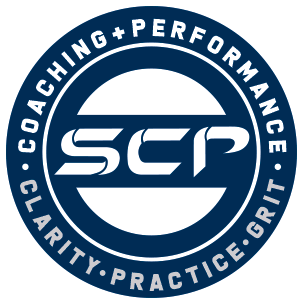Inspiring team action
We know how a high-performing team works on paper. And from a distance, we see those humming hives of productivity, crushing their goals and winning results. But is that real life? Transforming group work to team work can feel impossibly hard sometimes - even with clarity on the results you’re trying to achieve. How do you navigate the messy moments in the middle on the way to achieving your agreed-to results?
One of the most common challenges for teams is actually their deliberate practice of being a team. The gap between knowing and doing is one to actively shrink in order to consistently transform group work into teamwork. As best-selling Atomic Habits author, James Clear notes, it's deliberate, consistent practice that enables progress. Clear describes the insight as the difference between learning and practicing. Learning creates knowledge, practice creates skill. Both knowledge and skill are important, though to actively progress toward our goals, we need to prioritize action and skill development. We need to apply knowledge gained through intentional practice.
At SCP, we believe that teamwork is a crucible for learning a wide range of leadership skills that have positive ramifications well beyond the team setting. We know that many aspects of leadership can be taught and discussed, however at SCP we've found that teams and team projects provide a setting in which to practice and refine leadership behaviours. SCP team coaches facilitate the deliberate practice of teamwork through innovative academic programs like The Reach Alliance. Reach is a student-driven, faculty-mentored research and leadership initiative. Reach Alliance research projects depend on effective, inclusive collaboration between students and faculty from diverse backgrounds, with a wide range of skills and expertise. Recognizing that effective teamwork is a specific skill, the research and leadership initiative integrates team coaching into the program to support equipping and empowering the next generation of global leaders to create knowledge and inspire action on reaching the hardest to reach.
SCP team coaches assigned to Reach research teams facilitate the practice of leadership skills such as leading effective meetings, or giving and receiving feedback. Giving and receiving feedback is one of the most commonly acquired skills that researchers carry with them as they become alumni of the program. The simple three-part format that SCP coaches practice includes:
Observation - what did you actually see or hear?
Impact - what was the impact of the behaviour?
Action - what's the resolution that will move us forward?
Researchers practice the format with their teammates during regular status meetings and formal round-table debrief sessions too. With each repetition, practicing giving and receiving feedback, researchers gain confidence in their effective communication and build the collective competence of their team. They learn, then practice, to build skill and shorten the gap between knowing and doing. The consistent and intentional practice of giving and receiving feedback enables the work group to meet the rigorous demands of the program as a high-performing team.
“When we practice something, we are involved in the deliberate repetition of a process with the intention of reaching a specific goal. The words deliberate and intention are key here because they define the difference between actively practicing something and passively learning it.”
